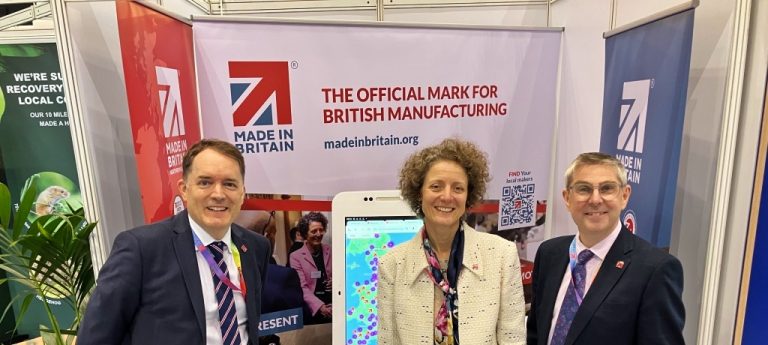Gateway 2 is a crucial regulatory checkpoint introduced under the Building Safety Act 2022, applying to higher-risk buildings, typically those over eighteen metres tall or with seven or more storeys and containing at least two residential units. Compliance is required before construction begins, meaning no work can legally start until the Building Safety Regulator (BSR) has reviewed and approved a detailed building control application. This application must demonstrate that the building’s design meets all relevant Building Regulations and properly considers fire safety and structural safety risks. The building control application submitted at the Gateway 2 stage is much more thorough than traditional applications. It requires developers to submit full design documentation, including plans, calculations, and specifications, along with a fire and emergency file and evidence that competent professionals are overseeing the project. Developers must also show how they will maintain the ‘Golden Thread’ which is a clear, up-to-date record of safety information applicable throughout the building’s life cycle. The application must also set out how any design changes during construction will be managed and reported to the regulator. The introduction of Gateway 2 is part of a wider push to improve building safety following the Grenfell Tower tragedy, ensuring safety is prioritised from the very start of construction. By requiring a ‘stop/go’ decision point before work can begin, Gateway 2 aims to prevent unsafe designs from progressing into construction, increasing accountability and ensuring higher standards across the industry. This stricter process is designed to reduce safety risks during both construction and the eventual occupation of the building. Gateway 2 is part of a staged process, the three gateways in the new system are: Gateway 1 – Pre-Planning: Considering safety risks at the planning application stage. Gateway 2 – Pre-Construction: Ensuring the design is safe before building starts. (this is where Gateway 2 compliance applies). Gateway 3 – Post-Construction: A final check before the building is occupied. Aluprof UK has demonstrated a strong commitment to aligning with the Building Safety Act’s requirements, particularly concerning Gateway 2 approvals. Its broad range of high performance façade solutions, all 3rd party tested to the relevant standards makes Aluprof the ideal partner. In addition their major projects team collaborates closely with specialist façade contractors to ensure that all necessary supporting documentation and compliance measures are meticulously prepared for submission to the Building Safety Regulator (BSR). This proactive approach is essential, especially in light of recent challenges faced by the BSR, such as delays in processing Gateway 2 applications due to an outsourced delivery model and a shortage of in-house technical expertise. Aluprof’s vertical integration benefits specifiers by ensuring consistent product quality, streamlined supply chains, and enhanced technical support. With in-house system design, manufacturing, and testing, Aluprof delivers high-performance aluminium systems that meet stringent UK and EU building regulations, including Gateway 2 requirements under the Building Safety Act. This integrated approach allows for greater customisation, faster lead times, and improved cost efficiency, giving specifiers confidence in project timelines and compliance. Additionally, direct collaboration with Aluprof’s experts ensures tailored solutions that align with architectural intent while enhancing sustainability and energy efficiency. UK-based facade specialists, Century Facades, in conjunction with the team at Aluprof UK, have recently confirmed that the Gateway 2 application for the Devonshire Place project in London is complete. The validation checks have recently been conducted and the application has been determined to be valid, however, the final decision will be made within the statutory timelines unless an extension of time is agreed. Marcin Bara, Design Director at Century Facades takes up the story: “In the context of UK construction industry, Gateway 2 focuses on ensuring compliance with the functional requirements of the Building Regulations and forms a “hold point” between the design and construction phases. It is crucial for a facade specialist contractor to work closely with the facade system supplier and vice versa to align on design intricacies, material specifications, and safety requirements. This collaboration must be based on trust and true partnership as only this ensures that the facade would not only meet aesthetic criteria but also adheres to performance and safety standards mandated by current Building Regulations via Gateway processes. “Effective communication and coordination between the contractor and supplier help in identifying potential issues early, optimising resource use, and ensuring the facade system contributes to the building’s overall compliance, sustainability, and safety objectives. This is where key partners such as Aluprof can work as an extension arm to our competent and fully qualified in-house Design and Engineering Teams to ensure the application produced for Gateway 2 is of the highest possible standards. “It is crucial for the system supplier to offer tailored approach to this new approval regime, so that their offer and service provided is project specific and matches our requirements as a specialist facade contractor fully. This is where our close partners such as Aluprof can play a key role in producing quality submissions, meeting expectations of our Clients entirely.” Between October 1, 2023, and September 16, 2024, the Building Safety Regulator (BSR) reported that they had received 1,018 Gateway 2 applications. Of these, only 146 were approved, equating to an approval rate of approximately 14%. The BSR rejected 25 applications, while the status of the remaining 847 applications was not specified. These delays have been attributed to several factors, including an unexpected surge in applications, a high number of incomplete or unclear submissions, and resource constraints within the BSR. Developers have expressed concerns that these bottlenecks are hindering essential housing projects, including student accommodations and build-to-rent homes. The BSR has acknowledged these challenges and is working to stabilise and improve the building control approval process for higher-risk buildings. They emphasise the importance of submitting clear and comprehensive applications to facilitate quicker decision-making and reduce delays. It seems there is still some confusion over the process with contractors and developers. In short, Gateway 2 compliance is about proving to the Building Safety Regulator that the design of a higher-risk building meets all safety requirements before work starts on














